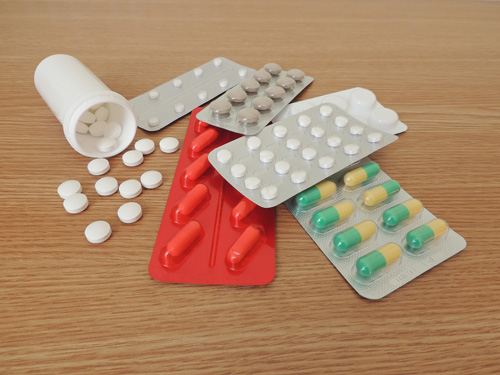 Proton pump inhibitors (PPIs) are drugs used to reduce symptoms of acid reflux, heartburn, and gastroesophageal reflux disease (GERD). PPIs are also given for the treatment of stomach or peptic ulcers; as well as used to lower esophagus damage caused by heartburn.
Proton pump inhibitors (PPIs) are drugs used to reduce symptoms of acid reflux, heartburn, and gastroesophageal reflux disease (GERD). PPIs are also given for the treatment of stomach or peptic ulcers; as well as used to lower esophagus damage caused by heartburn.
In 2013, over 15 million Americans were prescribed PPIs. Common PPIs include omeprazole, rabeprazole, and esomeprazole.
In a new study published in the journal JAMA Internal Medicine, a research team at Johns Hopkins University in Baltimore, Maryland, found that PPIs are associated with a higher risk of getting chronic kidney disease when compared to not taking the drugs.
Chronic kidney disease (CKD) is a progressive disease that will gradually lead to kidney failure. In CKD, the kidneys are unable to excrete wastes and fluids from the body. Common symptoms include poor appetite, fatigue, sleeping problems, and frequent urination at night. It may be caused by repeated urinary infections, kidney stones, or high blood pressure.
For the study, researchers’ analyzed date from 10,482 participants from the Atherosclerosis Risk in Communities (ARIC) study, which lasted for approximately 14 years. The results were later duplicated in a larger cohort of 248,751 people from the Geisinger Health System in Pennsylvania, with a follow-up that lasted six years.
In the ARIC group, 56 of 332 people develop CKD while using PPIs when compared to 1,382 of the 10,160 non-PPI users who developed CKD. Further analysis found that the 10-year absolute risk of developing CKD in the PPI users was 11.8% and 8.5% for non-PPI users.
When the analysis was repeated in the Geisinger cohort, the researchers found that 20.1% of the PPI users developed CKD, while 18.3% of the non-users got the condition. Further analysis continued the trend, with 15.6% of the PPI users developing CKD compared to 13.9% of non-PPI users.
Researchers pointed out that the link between CKD and PPIs does not necessarily indicate that the drugs cause the disease; however, it could suggest that the participants prescribed PPIs may be at a greater risk of CKD for unrelated reasons to using PPIs. That being said, previous studies have associated PPIs to a type of kidney inflammation, acute interstitial nephritis.
In a 2013 study published in the journal Circulation, researchers found that PPIs may lead to certain cardiovascular problems like a weakened heart and hypertension. Other studies also link PPIs to a higher chance of heart attacks.
Drugs used for heartburn and GERD include antacids like histamine-2 (H2) blockers. With the problems associated with stomach acid-suppressive drugs, there are alternatives that can help treat the problem. Natural treatments for heartburn and GERD include acupuncture, massage, hypnosis, peppermint, mastica chios, oil of oregano oil, chamomile, aloe vera, and licorice root.
It is also thought that the cause of heartburn and GERD is low stomach acid. In this case, Betaine HCl (hydrochloric acid) can help increase your stomach acid. Digestive enzymes with pepsin and probiotics can also improve digestive health. Aluminum-free baking soda with a few drops of freshly-squeezed lemon juice is another natural and effective way to relieve heartburn.
Sources for Today’s Article:
Lazarus, B., et al., “Proton Pump Inhibitor Use and the Risk of Chronic Kidney Disease,” JAMA Internal Medicine, 2016; doi: 10.1001/jamainternmed.2015.7193.
“Proton Pump Inhibitors Associated with Chronic Kidney Disease,” The JAMA Network web site, January 11, 2016; http://media.jamanetwork.com/news-item/proton-pump-inhibitors-associated-with-chronic-kidney-disease/.
